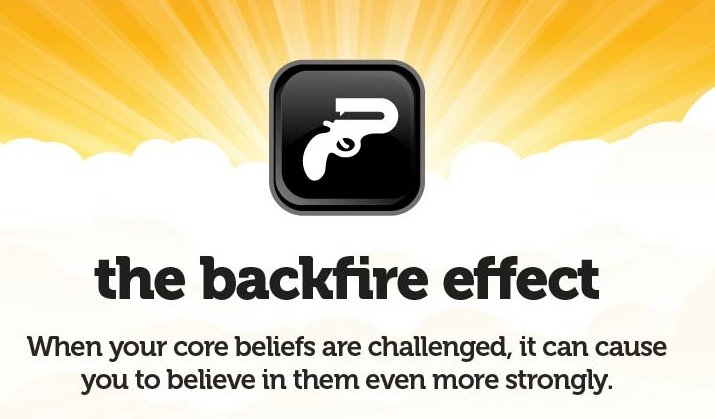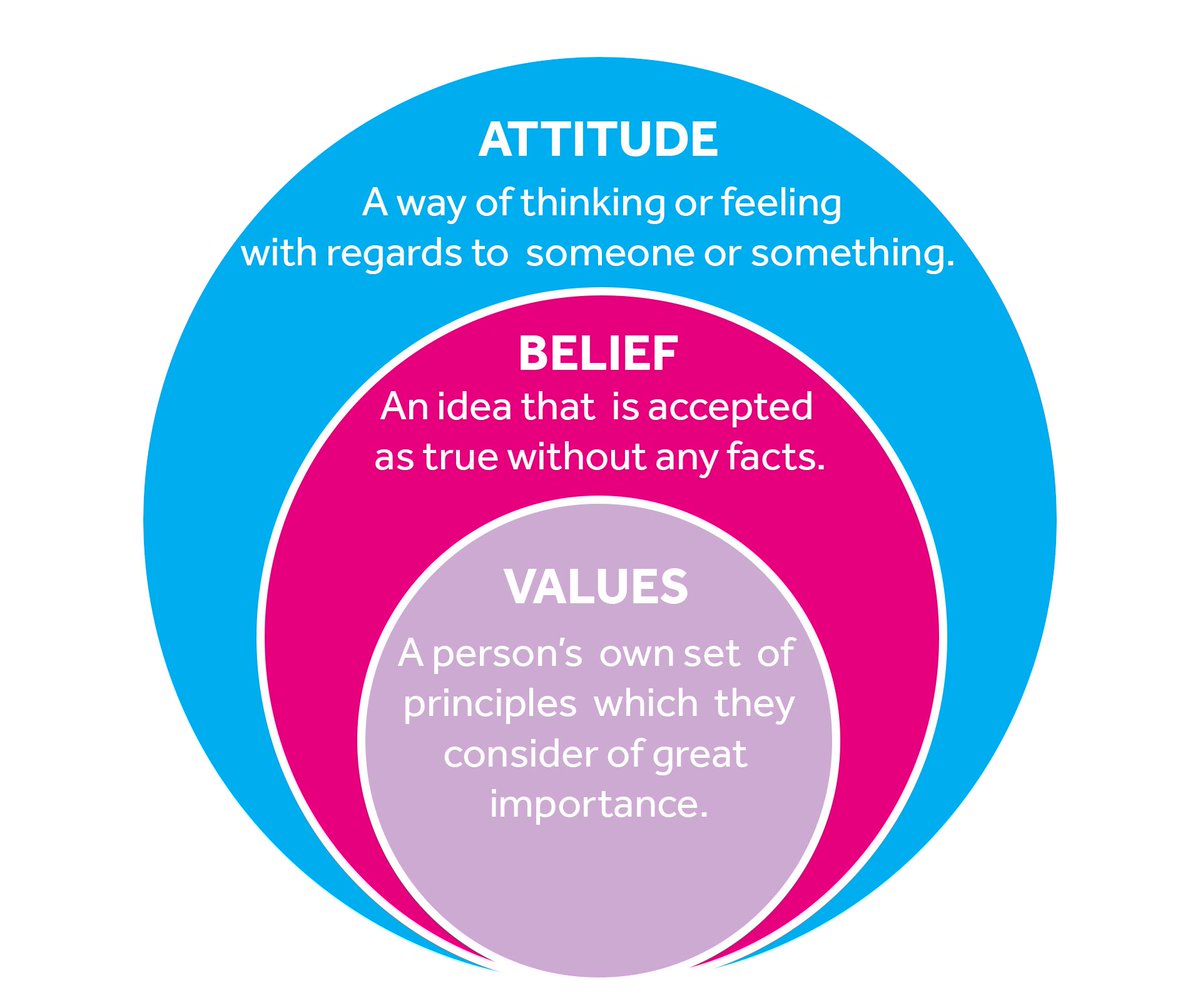purity culture is a direct result of cultivated identity by social media and it& #39;s important to recognize why arguments grounded in "fact" and "logic" aren& #39;t working to persuade. every time you link statistics or studies made by professionals, you& #39;re inducing the backfire effect.
while it& #39;s more credible to give sources to your claims (and it does rack up ethos points), not only will antis not read them, but if they do, it will strengthen their beliefs and make them dig their heels in. logos isn& #39;t persuasive because these beliefs are not rooted in logic.
antis believing what they do is rooted, rather, in pathos. unfortunately, many fiction =/= reality arguments don& #39;t appeal to emotion. you can& #39;t persuade an evangelical christian to believe there is no god with science alone. that& #39;s been established years ago.
so why and how is anti rhetoric rooted in emotional appeal? there& #39;s many reasons but for now, i& #39;ll be talking about cultivated identity as a major factor. but instead of expanding on how it relates to capitalism, i& #39;ll instead focus on how it manifests itself in online spaces.
do you ever wonder why a harmless opinion online (for example, "i like xyz food" or "i don& #39;t like xyz show") almost always hooks at least one person into not only disagreeing with you, but they have to assert their opinion as if it actually carries importance?
you can& #39;t say anything on twitter dot com without someone giving their take in some way. this is because, unlike irl, people online do not have an identity outside of their opinions. the internet has a different culture and it can be sociologically studied.
on twitter (& the internet in general), you are defined by what you tweet, what you like, followers, followings, etc. these are intangible ideas with no anchor are what makes you who you are. therefore, if you are not actively using twitter, you do not have a twitter identity.
twitter gives people the ability to have a voice, which can be addictive for ppl who feel unheard. this especially goes for those who are marginalized, traumatized, or both. when you grow up in a household (or society) that is disinterested in your voice, expressing it feels good
but this becomes more extreme with the way fandom has developed. being a fan is a part of many people& #39;s identities. avatars, banners, account layouts advertise "this is me, this is who i am!" which isn& #39;t necessarily a problem. but it can lead to identity integrated in fiction.
when someone says "i dislike xyz show, ship, character" it can feel like someone is saying "i dislike you, i dislike who you are" when your identity is wrapped up in a piece of fiction.
and with this in mind, notice that there isn& #39;t a single anti who is just a casual fan.
and with this in mind, notice that there isn& #39;t a single anti who is just a casual fan.
cultivation of identity is something corporations use to associate identity with a product or brand (someone being an "apple person" and religiously using apple is an example of this). similarly, when someone says they don& #39;t like a franchise, fans defend it to the death
when someone& #39;s identity becomes this fragile *on top* of being a victim of abuse and gaslighting (while also being a teenager, a stage of life that is infamous for identity crisis) the end result can easily become antihood. why?
because growing up with social media that& #39;s encouraged you to believe that you are what you like and post can manifest an identity dependent on what one consumes. this is another reason why i feel gen z is more susceptible to this rather than older adults.
so how does this become anti rhetoric? when you are a trauma survivor and you begin to project on a character or series, that can become a fixation and a coping mechanism within itself. seeing dark porn of your favorite character can make you collapse in on yourself
not only that, but people feel a gut instinct to protect what they love. when an anti loves a character, that attachment goes very deep. and when an anti hates a character, that can go even deeper. when a fictional character or situation bears resemblance to negative experience—
—for someone who was torn to shreds by trauma, it threatens their identity and their experiences as well. it threatens a space they want to feel safe in because others seeing or drawing or writing a character (that they love or hate) in a certain way evokes powerful emotions
"they& #39;re not real" means "something i love is not real" means "i am not real / you are invalidating my personal experiences with trauma and allowing people to write my pain in a way that thrusts my agony into the open for others to get off to."
antis have not processed their pain in a way that allows them to separate their trauma from their identity, and when they relate to characters, those characters become them. getting off to a character getting hurt is getting off to a survivor getting hurt.
fiction = reality because their identity is wrapped in fiction. of course characters who they love and cherish hold more value than the very real people who hurt them in fictional scenarios. letting that attachment go feels like losing a part of yourself. it& #39;s a coping mechanism.
this passion for fictional characters makes people send anon hate, yell at others, tell people to kill themselves. it& #39;s not logic: it& #39;s emotion, specifically anger towards those who get off to what makes them hurt.
it isn& #39;t fiction = reality. it& #39;s "this fictional trauma hurts me as much as my real trauma hurt me." seeing fictional scenarios like that can be painful in an excruciating and agonizing way. but instead of taking responsibility for filtering content, they want it gone.
"why don& #39;t they just filter that content???" because its existence makes them upset. if that seems ridiculous, you& #39;re free to feel that way. but by now you should understand that the way they think is not a result of an appeal to logic. anti rhetoric appeals to emotion.
"are you a survivor? did you know there& #39;s people jacking off to the same pain you experienced, taking it out on characters you deeply relate to? join us and we& #39;ll bond over our disgust. then we will try to make sure people don& #39;t create that content because it hurts survivors."
it creates a community of like minded people all saying the same things, except the methods of "keeping people from creation" becomes more violent and the terminology grows more deceptive. when antis make their arguments, they rely entirely on pathos.
therefore, i think that persuasive techniques involving logos *will not work.* statistics, studies, quotes, therapists, researchers won& #39;t work. to unravel and reverse the effects of purity culture, you have to appeal to emotion.
the problem with the fiction =/= reality position is you& #39;re already arguing from a place that lacks ethos. you have no credibility or ground to stand on when you& #39;re being called a pedophile or an abuse apologist. it discredits anything you could possibly say.
so the way you combat this would be to weaponize emotions to fight emotions. it sounds nonsensical, but it will change people& #39;s minds. it& #39;s what changed nearly all ex-antis in the past, including me.
also gonna boost another thread i just made, in case you wonder why targeted harassment occurs: https://twitter.com/LUPINEXUS/status/1178786784001421312">https://twitter.com/LUPINEXUS...
part 2 https://twitter.com/LUPINEXUS/status/1179884266357841920?s=19">https://twitter.com/LUPINEXUS...

 Read on Twitter
Read on Twitter



